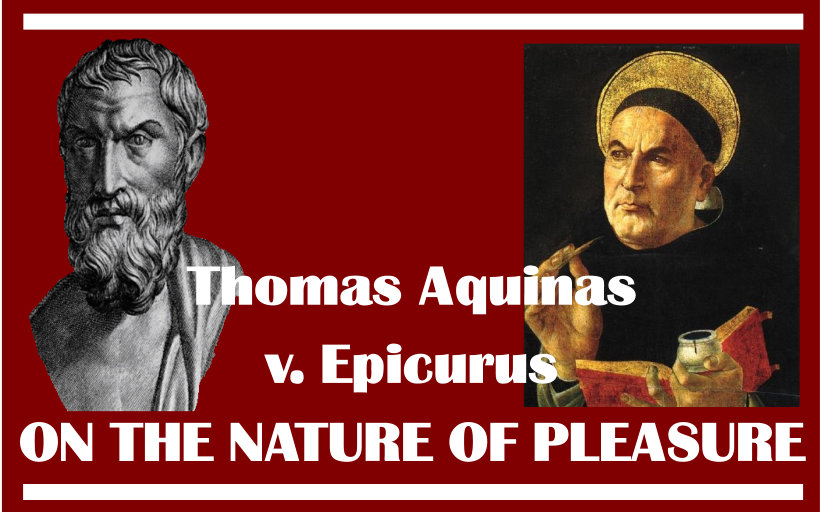Thomas Aquinas v. Epicurus – On The Nature of Pleasure
I have been continuing to research the philosophical background against which Epicurus constructed his Principle Doctrines, and I decided to let a more recent writer do some of the work for me. Thomas Aquinas is well-known to have been a devotee of Aristotle, and his Summa Theologica contains a handy summary of both Aquinas’ position and a number of other views he considered important. Most of these views, while not always cited, likely date to the ancient world, and serve as a good summary of the cumulative arguments against the Epicurean position thought to be most persuasive at the time of Aquinas.
I have prepared a short chart of these to make the comparison with Epicurus easier. For the present, it can be found here as a public Google Doc. All cites in the Thomas Aquinas column come straight from the English version of Summa Theologica, with little if any editing. Please feel free to suggest additions to the cites under the Epicurean column. I have started with the most applicable doctrines and cites to the Letter to Menoeceus, but many more could be added. Please let me know if you have others to suggest!
A number of observations jump out – primarily: Thomas Aquinas was a defender of “happiness,” but just as with Aristotle, the devil is in the definitions, and Aquinas goes to great lengths to separate happiness from pleasure. As with the Stoics, Aquinas goes the route of circular reasoning with “virtue,” which he never defines except to equate it in ambiguous terms to the nature of God. This is another warning that it is critical to check definitions in order to unravel what arguments are really about.
{Click here for full-page Google Doc version.}
—–

